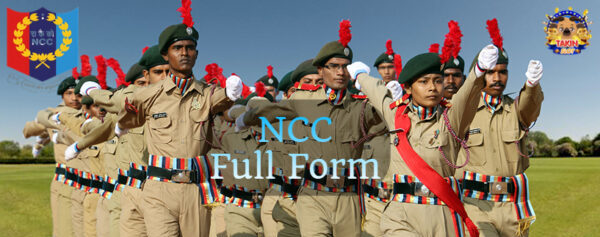The National Cadet Corps (NCC) is a voluntary youth organization in India, established in 1948 under the Ministry of Defense with approval from Lord Louis Mountbatten, then Governor General of India. It operates under the Ministry of Youth Affairs and Sports, Government of India, catering to Indian citizens aged 12 to 19. With over 16 million members, it stands as the largest youth organization in the country. Initially conceived as part of the Indian Army, NCC primarily engages school students in its activities, welcoming all Indian citizens under 18 years of age.
The Indian National Cadet Corps: A Brief History
The Indian National Cadet Corps (NCC) traces its origins back to 1948, under the leadership of Field Marshal K.M. Cariappa, who notably commanded the Indian National Army. Established with the aim of providing military training to the youth of the nation, particularly students in schools and colleges, the NCC also seeks to instill in them a sense of patriotism.
With India’s independence from British colonial rule, the transition from the colonial Indian Army to the Indian Army occurred. Initially, there was no provision for the NCC within the Army, as the officer corps primarily served the British Army. However, cadets within the NCC don uniforms akin to those of the Army and may eventually become part of its ranks.
Main Objectives of the NCC
The NCC operates through two main segments:
- A) Outdoor Activity Section: This segment encompasses sports, cultural activities, civil defense, patriotic endeavors, military history, adventurous pursuits, camping, and hiking.
- B) Core Activity Section: In this section, emphasis is placed on cultural and fitness activities such as NCC dance, drill, and weapon skills.
These training activities aim to provide cadets with practical exposure and opportunities to function under various leadership scenarios. The NCC serves as the largest youth organization in India, welcoming Indian citizens between the ages of 12 to 18, primarily operating as a voluntary organization for school students.
The Contribution of the NCC to India’s Development
In a nation grappling with significant challenges such as widespread illiteracy, poverty, and social issues, the National Cadet Corps (NCC) has emerged as a transformative force for Indian youth. By providing a platform for millions of children to discover and hone their talents while serving the nation, the NCC has played a crucial role in addressing these pressing issues. Many young individuals have not only gained literacy but have also acquired valuable skills in various trades, thereby becoming assets to India’s competitiveness on the global stage.
Moreover, the NCC has offered a unique opportunity for Indian youth to comprehend the importance of work, family, and community life—values often overlooked in society. By instilling a sense of responsibility and motivation to contribute to their communities, the organization has nurtured individuals who actively participate in the betterment of society.
The NCC: Upholding Sacred Value
The NCC places emphasis on core values that guide its members:
- Service: Cadets are recruited based on their commitment to serving the nation and their communities, prioritizing service over mere qualifications.
- Duty: Serving as a brotherhood united in the service of the country, the NCC instills a sense of duty towards one’s community and region.
- Discipline: NCC members adhere to high standards of personal discipline, aiming for excellence in their conduct, performance, efficiency, and patriotism.
Conclusion
The National Cadet Corps boasts a rich and storied legacy, having produced numerous national and international leaders. Serving as the primary youth organization in India, it plays a pivotal role in training school children for national service initiatives such as the National Service Scheme (NSS) and the Citizen Corps Program (CCP). These programs aim to foster a stronger sense of national unity and equip young people with skills applicable across various economic, social, and political domains, thereby contributing to India’s overall development and progress.
FAQs
What is the National Cadet Corps (NCC)?
The National Cadet Corps (NCC) is a voluntary youth organization established in 1948 under the Ministry of Defense, Government of India. It aims to provide military training to Indian youth, primarily students in schools and colleges, while instilling in them a sense of patriotism and discipline.
Who can join the NCC?
The NCC is open to Indian citizens aged 12 to 19, making it accessible to school students across the country. Membership is voluntary, and individuals interested in joining can participate in NCC activities and training programs.
What activities does the NCC offer?
The NCC offers a diverse range of activities, including sports, cultural events, civil defense training, patriotic activities, military history studies, adventurous pursuits, camping, hiking, drill exercises, and weapon skills training.
How does the NCC contribute to national development?
The NCC plays a crucial role in developing the youth of India by providing them with opportunities to discover their talents, serve the nation, and instill values of service, duty, and discipline. Through its programs, the NCC addresses societal challenges and nurtures responsible citizens who contribute positively to society.
What are the core values of the NCC?
The NCC emphasizes core values such as service, duty, and discipline. Cadets are recruited based on their commitment to serving the nation and their communities, prioritizing service over mere qualifications. They adhere to high standards of personal discipline and strive for excellence in conduct, performance, efficiency, and patriotism.




